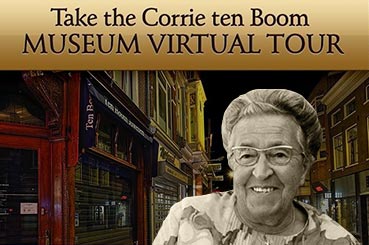
One of the families that has figured most prominently in the Zionist movement and then the history of Israel is the Netanyahu family.
Though the history of the Jewish people reaches back thousands of years to the time of Abraham, the history of the modern state of Israel is still fairly short. The miraculous rebirth of the nation in 1948 was a world-shaping fulfillment of prophecy. But it also represented the culmination of many years of work, sacrifice, hope, sweat, and blood, and in the natural realm, it was only possible because of the leaders who were chosen to meet the challenge of the times.
It is impossible to tell the story of the Jewish state without naming some of the men and women who did so much to bring Israel to life and then protect the newborn state from those who sought to destroy her. Among the many, many honored heroes of Israeli history are David Ben-Gurion, Moshe Dayan, Mordechai Gur, Golda Meir, and Menachem Begin. We are truly privileged to have one of the last members of Israel’s founding generation, President Shimon Peres, who is now 93 years old, as the International Chair of the Friends of Zion Heritage Center.
Three generations have provided vision, learning, courage, inspiration, and leadership to the Jewish people. To date, Prime Minister Benjamin Netanyahu has been Israel’s second longest serving prime minister (after David Ben-Gurion, the first to hold the job). His leadership and character have been indelibly shaped by the lives and work of his father and grandfather. Here is a look at the lives of this extraordinary family:
Rabbi Nathan Mileikowsky
[caption id="attachment_2664" align="alignright" width="142"] Until his death in 1935, Mileikowsky remained a leading voice for the rebirth of Israel.[/caption]
Until his death in 1935, Mileikowsky remained a leading voice for the rebirth of Israel.[/caption]Born in what is now Belarus (then part of Russia) in 1879, Nathan Mileikowshy learned early what it meant to be Jewish in an anti-Semitic world. His family, like most of the Jews living in Russia, was forced to live in a region known as the Pale of Settlement. In addition to restricting Jewish business opportunities and livelihoods, it made them easy targets for the pogroms as anti-Semites launched waves of assaults against the Jewish people.
Mileikowsky was brilliant even as a young boy and sent to yeshiva when he was ten for the training that would prepare him to be a rabbi. During his schooling, he learned of the then-new Zionist movement and even as a teenager became an ardent supporter of the cause of returning the Jewish people to their ancient homeland.
He made repeated trips across Russia, speaking out in favor of Zionism and encouraging Jewish people to support the idea. He was a regular at the Zionist Conferences and a vocal opponent of the Uganda Plan—a compromise that suggested setting up a Jewish state in central Africa rather in Israel. In 1908, Mileikowsky moved to Poland, where he remained active as a leader in the Zionist movement.
Unlike most Jewish people and rabbis of the time, Mileikowsky presented his sermons in Hebrew rather than Yiddish, and according to his son Benzion, the family spoke Hebrew at home as well. Two years after the end of World War I, with Great Britain in control of what was then known as Mandatory Palestine, Nathan Mileikowsky and his family moved to Israel.
There Mileikowsky taught school and became a prolific author. It was during this time that he began signing many of his articles with the name Netanyahu. In the 1920s, Mileikowsky began traveling and raising money for the Jewish National Fund. He was a popular speaker in both England and the United States. Hundreds of speeches helped encourage many Jewish people to move to Israel and provided the funds for the purchase of land. A collection of his speeches was published in 1928 under the title Nation and Land.
Until his death in 1935, Mileikowsky remained a leading voice for the rebirth of Israel. The driving force of his vision and personality helped shape the future Jewish state. In a speech to the United Nations a few years ago, Prime Minister Benjamin Netanyahu revealed a story that explains the life and dedication of his grandfather. Mr. Netanyahu said:
“Ladies and gentlemen, one cold day in the late 19th century, my grandfather Nathan and his younger brother Judah were standing in a railway station in the heart of Europe. They were seen by a group of anti-Semitic hoodlums who ran towards them waving clubs, screaming ‘Death to the Jews.’
“My grandfather shouted to his younger brother to flee and save himself, and he then stood alone against the raging mob to slow it down. They beat him senseless; they left him for dead; and before he passed out, covered in his own blood, he said to himself, ‘What a disgrace, what a disgrace. The descendants of the Maccabees lie in the mud, powerless to defend themselves.’
“He promised himself, then, that if he lived, he would take his family to the Jewish homeland and help build a future for the Jewish people. I stand here today as Israel’s prime minister because my grandfather kept that promise.”
Benzion Netanyahu
[caption id="attachment_2665" align="alignright" width="257"] Benzion Netanyahu was a clear-eyed man. He had no illusions about the intentions of the enemies of Israel or their willingness to carry out their evil schemes.[/caption]
Benzion Netanyahu was a clear-eyed man. He had no illusions about the intentions of the enemies of Israel or their willingness to carry out their evil schemes.[/caption]Born in Warsaw, Poland in 1910, Benzion Mileikowsky moved with his parents to Israel (then known as British Mandate Palestine) when he was ten. His father began using the Hebrew last name Netanyahu, which means “gift from God,” and Benzion and his brothers took that as the family name.
Benzion was a gifted student who excelled in his studies at the Hebrew University in Jerusalem. Following a stint as the editor for several Zionist papers and magazines, Benzion moved to America just before the outbreak of World War II. He was active in Zionist circles in New York and served as the executive director of the New Zionist Organization of America. In addition, he completed work on a PhD at Dropsie College in Philadelphia.
He returned to Israel after the establishment of the Jewish state in 1948 and resumed his teaching and writing work. He served as editor in chief for the <em>Encyclopaedia Hebraica</em>, a comprehensive Hebrew language encyclopedia, for a number of years. In the late 1950s, Benzion Netanyahu returned to the United States where he taught Hebrew literature and Jewish history at Dropsie College, the University of Denver, and finally at Cornell University.
He wrote several books, and his best-known work, Origins of the Inquisition in Fifteenth Century Spain, is still considered one of the landmarks of study in the field. Netanyahu was a careful scholar, but his work was not always well received by those who did not accept his conclusion that Jewish history was “a history of holocausts.”
Following the death of his oldest son Yonathan in the Entebee raid that freed Israeli passengers from Palestinian terrorists in 1976, Benzion returned to Israel where he lived for the rest of his life. More than 30 years ago, I rang his doorbell after reading an article about the anniversary of his son’s death. I introduced myself, and he very politely invited me, a complete stranger, into his home and offered me tea. It was on that day that I met his second son Benjamin and prayed over him, anointed him with oil, and prophesied that he would twice serve as prime minister of Israel.
Benzion had not been successful in his attempts to enter politics, and his son was not involved in the field at all on that day (he was selling furniture). But the next day, I met with then-Prime Minister Menachem Begin and asked him to find a place for Benjamin in his administration. That meeting—which the world would call chance, but which I know was directed by the hand of God—has had a powerful impact on Israel and is still having one today.
Benzion Netanyahu was a clear-eyed man. He had no illusions about the intentions of the enemies of Israel or their willingness to carry out their evil schemes. He once said, “There is no doubt that the vast majority of Arabs would choose to exterminate us if they had the option to do so.” Sadly, he was right. Benzion did much to call the attention of the world to the evil treatment the Jewish people have received in both the past and the present. He died in 2012 at the age of 102.
Yonathan Netanyahu
[caption id="attachment_2667" align="alignright" width="341"] "I would rather opt for living here in continual battle than for becoming part of the wandering Jewish people."–Yonathan Netanyahu[/caption]
"I would rather opt for living here in continual battle than for becoming part of the wandering Jewish people."–Yonathan Netanyahu[/caption]Yonathan Netanyahu, the oldest son of Benzion and Zila Netanyahu, was born in New York City in 1946. His parents were there to work for the creation of a Jewish state. Yoni, as he was known, was named for a Christian Zionist—Colonel John Henry Patterson. In fact, he and Benzion Netanyahu were such close friends that Benzion asked Colonel Patterson to be Yoni’s godfather.
I had dinner with Dr. Iddo Netanyahu, the yougest of the three brothers, in Jerusalem some time ago, and he told me that in the family home when he was growing up, there was a special commemorative bowl with a personal inscription that had been given to the family by Colonel Patterson.
After the nation of Israel was reborn in 1948, the Netanyahus moved back to the Jewish state, where Benjamin and Iddo were born. Benzion Netanyahu was working on research, teaching, and editing the first Hebrew encyclopedia while Yoni was in school. The family moved back and forth between Israel and America several times while Yoni was growing up.
He was an outstanding student and was elected as president of the student council at his school in Jerusalem. Benzion returned to America before Yoni’s senior year to teach at Dropsie College in Philadelphia, and Yoni graduated from high school in America. The family remained, but Yoni returned to Israel to begin his military service.
After basic training, Yoni volunteered for service in the paratroopers, and his outstanding performance resulted in his appointment to officer training school. After graduating first in his class, Yoni was given a command position and served his country with courage and distinction. Yoni’s military term of service ended early in 1967. He had been accepted to attend Harvard starting that fall, but a major war was about to intervene.
With the Six-Day War looming, Yoni, along with many other reservists, was mobilized and called back to active duty. He fought in the Sinai against Egyptian forces and then was moved north to face the Syrians in the Golan Heights. During the fighting there, Yoni was wounded as he tried to rescue another injured soldier. He crawled back to the Israeli lines before collapsing. His wounds required two surgeries, and he never fully regained the use of his left arm.
Yoni did make it to Harvard by the fall of 1967 and spent a year there but then returned to Israel to further his college education at the Hebrew University in Jerusalem. The continuing threats facing the Jewish state led Yoni to return to military service, especially in light of the urgent need of the Israeli army for experienced commanders. He was assigned to to the Sayeret Matkal, a secret and elite commando unit in which his younger brother Benjamin was already serving. They would soon be joined by Iddo Netanyahu, and the three brothers fought together for two years.
Though most of the operations of the Sayeret Matkal remain classified 40 years later, it is known that Yoni and his unit were very active in fighting against the PLO in the early 1970s, especially after the Black September raid on the Munich Olympics that killed eleven Israeli athletes and coaches. Yoni returned to his studies at Harvard again in 1973 and was able to spend time with his parents as his father was teaching Jewish Studies at Cornell at the time.
The Yom Kippur War saw Yoni called back to service once again. He led Israeli special forces fighting the Syrians in the Golan Heights. Yoni received a distinguished service medal for rescuing a wounded Israeli officer trapped behind Syrian lines. When the war ended, he received command of an armored unit. In 1975, Yoni was appointed as commander of the Sayeret Matkal commando team with which he had served.
On June 27, 1976, an Air France flight leaving Israel was hijacked by Palestinian terrorists and flown to Entebbe, Uganda. The dictator there, Idi Amin, welcomed the terrorists and backed them up with Ugandan troops. More than 100 Israelis were being held. The threat was that they would be killed unless the government released Palestinian prisoners.
On July 1, Yoni was ordered to draw up plans for a potential rescue operation. He and his top advisers quickly considered options. They constructed a replica of the terminal building so they could assess different approaches. The mission needed to be able to move swiftly so that the terrorists would not kill the hostages once they realized a rescue was underway. In addition, they needed to be able to fight off the Ugandan troops stationed at the airport and prevent reinforcements from keeping them from leaving.
The commando unit rehearsed possible approaches for most of the next day before Yoni went before the leaders of Israel’s military to brief them on the plan. As additional intelligence information about the situation on the ground came in, they continued to revise the plan. Finally, Yoni was prepared to offer a confident assessment that the daring raid would succeed. Shimon Peres, then the Defense Minister and later Prime Minister of Israel, recalled their meeting this way:
“He presented the plan to me in detail, and I liked it very much. The two of us sat alone…My impression was one of exactness and imagination…and complete self-confidence…which, without a doubt, influenced me. We had a problem with lack of intelligence, but Yoni said: ‘Do you know of any operation that wasn’t carried out half blind? Every operation is half blind.’ But Yoni was well aware of the problem, and he told me that the operation was absolutely doable. And as to the cost, he said we had every chance of coming out of it with almost no losses.”
On July 3, the Israeli government met in secret session, and after a lengthy debate, approved the plan. Yoni and his commando team were already on four planes and flying toward Uganda. They would have been called back had the vote gone against the attempt. During the flight, the exhausted Yoni, who had been going non-stop for nearly a week, napped on a small bed near the front of the plane.
One of the pilots later described the scene: “He was sleeping like a baby, utterly at peace. I asked Tzvika, the navigator, when Yoni had gone to sleep, and he said, ‘He went to sleep [a while ago] and asked me to wake him up a little while before the landing.’ And the thought flitted through my mind: Where does this calmness of his come from? Soon you’re going into battle, and here you are, sleeping as if nothing is happening! I myself couldn’t fall asleep. I got up and went back to my seat.”
The raid was carefully timed to begin just after midnight, early on the morning of July 4. The team had procured vehicles like those used by the Ugandan army so that the terrorists would not immediately recognize they were under assault. Nearly everything about the raid worked perfectly as they had planned. For example, as the vehicles advanced down the runway toward the terminal, there were two Ugandan guards exactly where they were expected to be. One of the members of the raid team later said, “When I saw those two guards waiting for us, like the guards that Yoni had placed in the rehearsal, I knew that this operation would succeed.”
As the commandos made their way toward the building, Yoni was seriously wounded by terrorist gunfire, but his team, in keeping with the instructions he had issued before the battle, did not stop to care for him. The safety and rescue of the hostages was their priority. The men made their way inside and killed all of the terrorists. Yoni was still alive when they returned, but the efforts of the doctors on the plane to save his life failed, and he was pronounced dead on the return trip to Israel.
In his diary, Shimon Peres recounted hearing the news: “At four in the morning, Motta (Mordechai) Gur came into my office, and I could tell he was very upset. ‘Shimon, Yoni’s gone. A bullet hit him in the heart…’ This is the first time this whole crazy week, that I cannot hold back the tears.”
In the end, 102 of the 106 hostages were rescued alive, and the Israeli commandos only lost one soldier—their leader, Yoni Netanyahu. Yoni’s body was flown back to Israel, and he was buried on Mt. Herzl.
In a letter to his brother Benjamin, written shortly after the end of the Yom Kippur War in 1973, Yoni Netanyahu said: “We’re preparing for war, and it’s hard to know what to expect. What I’m positive of is that there will be a next round, and others after that. But I would rather opt for living here in continual battle than for becoming part of the wandering Jewish people. Any compromise will simply hasten the end. As I don’t intend to tell my grandchildren about the Jewish State in the 20th century as a mere brief and transient episode in thousands of years of wandering, I intend to hold on here with all my might.”
Benjamin Netanyahu
[caption id="attachment_2668" align="alignright" width="231"] Prime Minister Netanyahu does not shrink from identifying threats to his nation or world peace and is willing to call evil by its rightful name.[/caption]
Prime Minister Netanyahu does not shrink from identifying threats to his nation or world peace and is willing to call evil by its rightful name.[/caption]Benjamin Netanyahu is the first Israeli prime minister to be born in the newly reborn nation of Israel. He spent much of his youth in the United States where his father was teaching and writing. Netanyahu returned to Israel and served with distinction in the Israeli Defense Forces. He joined his older brother Yonathan in the Sayeret Matkal special forces unit, and took part in a number of operations that are still classified. Netanyahu was wounded during Operation Isotope in 1972.
Netanyahu finished a four-year degree at MIT in two-and-a-half years—even with taking time off to fight the Yom Kippur War. He left the military with the rank of captain. Following a stint as a management consultant with Boston Consulting Group (where he became close friends with Mitt Romney), Netanyahu returned to Israel. After working in a number of government positions, Netanyahu entered elective politics in 1988.
He became the leader of the Likud political party in 1993, and in 1996 he became the youngest prime minister in Israel’s history. After his first term as prime minister, he held various positions in the Israeli government, including Foreign Affairs Minister and Finance Minister. In 2009, he returned to the prime minister’s office and was reelected in 2013 and again in 2015. His fourth election to the position ties the record held by David Ben-Gurion for most times elected to the office, and on the completion of his current term, he will become the longest serving prime minister in Israel’s history.
In a world filled with leaders who value acceptance and praise over truth, Prime Minister Netanyahu is noteworthy for his willingness to speak truths that most would prefer to avoid. He does not shrink from identifying threats to his nation or to world peace and is willing to call evil by its rightful name.
 Some years ago, I had the privilege of sitting down with my friend of more than 30 years for a formal interview about the state of the world. His answer to this question about Iran and its nuclear program (which is tragically so much closer to completion today because the world has refused to face the truth) reveals so much about his clear-eyed insight into the situation facing his people, his vision of the future, and his commitment to protecting the Jewish state.
Some years ago, I had the privilege of sitting down with my friend of more than 30 years for a formal interview about the state of the world. His answer to this question about Iran and its nuclear program (which is tragically so much closer to completion today because the world has refused to face the truth) reveals so much about his clear-eyed insight into the situation facing his people, his vision of the future, and his commitment to protecting the Jewish state.
MDE: On 9/11 you spoke to the nation, and you described 9/11 as a “wake-up call from hell.” What would America look like and what could happen to our nation if Iran goes nuclear?
Mr. Netanyahu: Iran has said in unequivocal terms that first of all, its target is Israel, and they do it with a particular brand of malevolence because they deny that the Holocaust took place—the murder of six million Jews—while they’re openly declaring their intention to create another holocaust to destroy the six million Jews of Israel. Number one, Israel could be in great jeopardy. Number two, so will everybody else. That is, in short order, the Western-oriented regimes of the Middle East would fall by the wayside. That is why you see the Arab countries are siding against Iran, against Hezbollah, because they understand what I am saying. So, the Middle East could be taken over, and that means the oil fields—the oil spigot of the world—would be in Iranian hands. If you are worried about oil prices today and what that does to the Western economy, just think about tomorrow. And number three, of course, is the ability of Iran to use its nuclear arsenal and its missile arsenal to threaten Europe and the U.S. directly.
Make no mistake about it: their mad, apocalyptic vision would be perfectly possible for them to do. This is not the Soviet Union; this is not China. These are not rational forces. Whatever you could say about the Soviet Union, it acted fairly carefully on the world scene. Every time their ideology of world domination conflicted with their survival, they always backed off…in Cuba, in Berlin. They always backed off; they were very rational in that regard. But you can’t count on the ayatollahs of the world, armed with nuclear weapons, to back off. They often prefer their zeal over their survival. Have you ever heard of a Communist suicide bomber? No. But militant Islam produces battalions of them, and they smash into buildings in Manhattan, and they smash into the Pentagon, into U.S. warships, into buses, schools—you name it. So, this is a different ideology; it is a different threat. It must not be allowed to be armed. It is the new barbarians who are seeking the weapons of mass death, and we have all been forewarned. This is another wake-up call. That’s all it is.
Truly, Prime Minister Netanyahu is a leader set in place by God for his nation at “such a time as this.” He is continuing an outstanding legacy of service and leadership to the Jewish people that has been a tradition in his family for many years. He needs our prayers as he leads Israel during these prophetic days.






